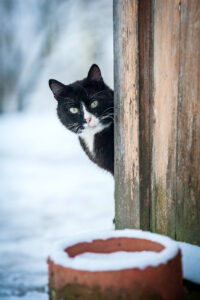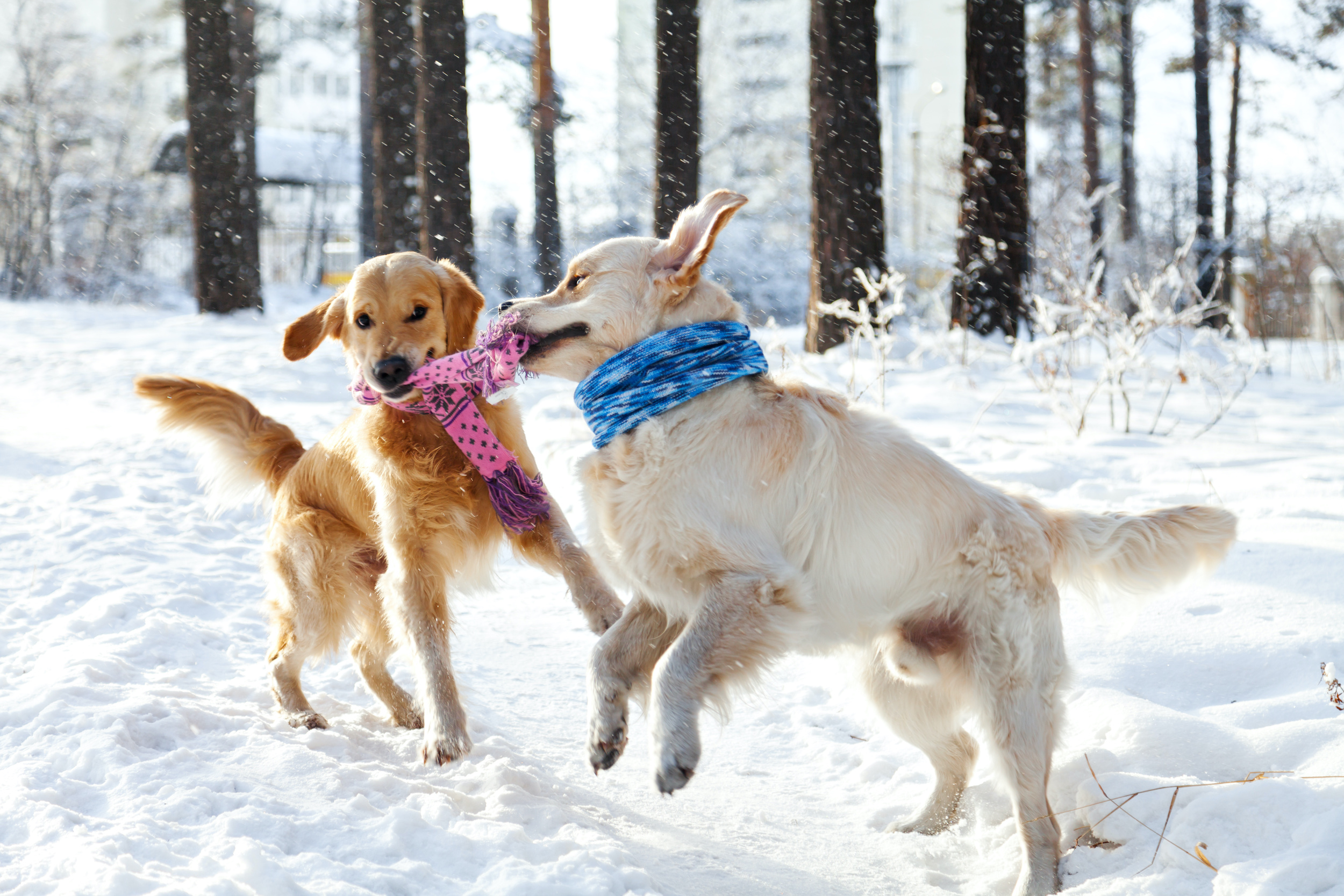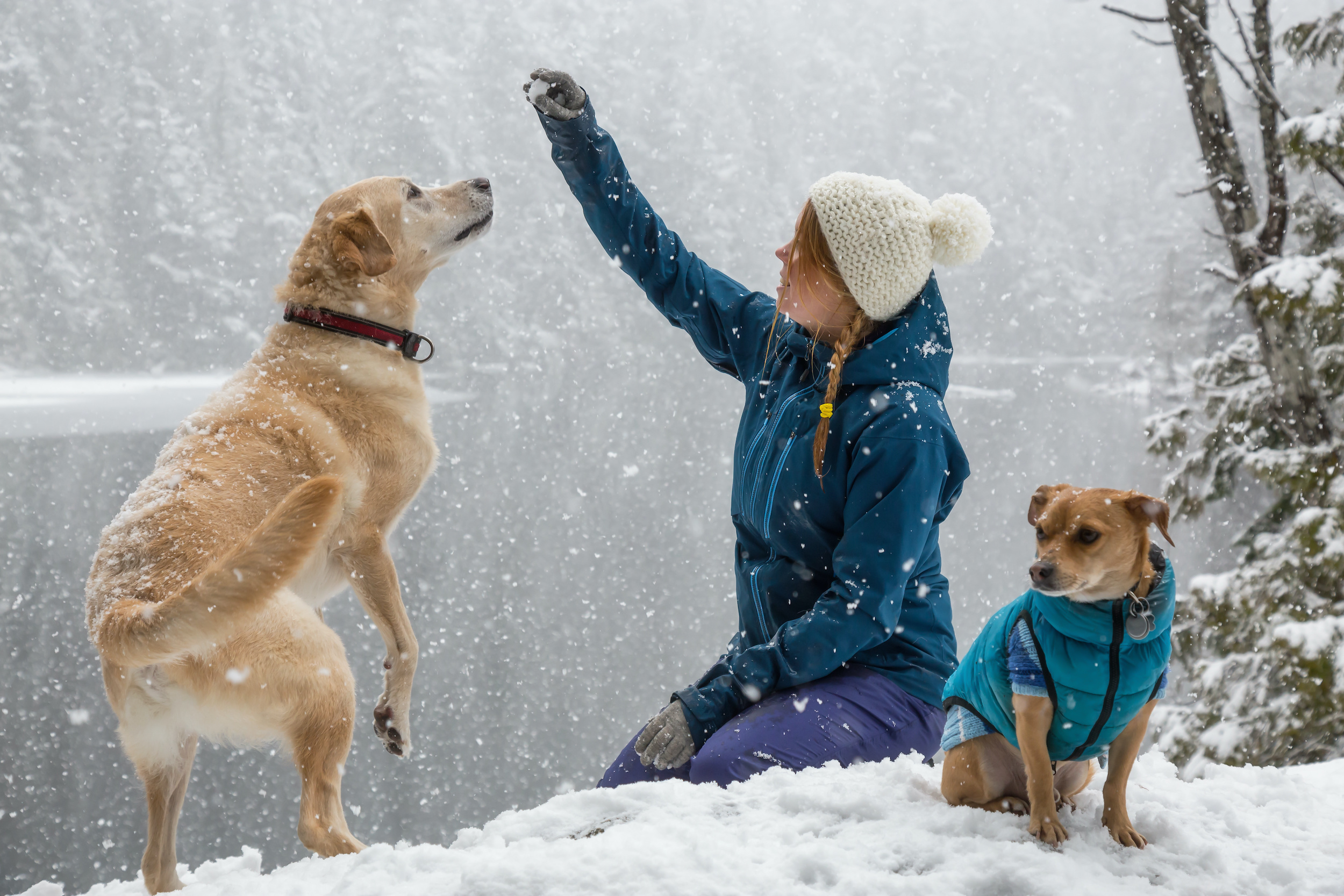Now that some seriously wintery weather has arrived in Northern Westchester, it’s a good time to offer pet safety tips for the cold and snow. Winter snow and ice can bring a host of challenges, including when it comes to the well-being of our beloved pets. As a leading animal hospital in Westchester, the veterinarians of Croton Animal Hospital are dedicated to guiding pet owners through the icy grip of the season with cold weather pet safety advice.
How Can I Protect My Pet in Freezing Weather?
When temperatures plummet, our instinct to shield our furry friends from the cold is natural. Ensuring your pet’s safety begins with recognizing their individual cold tolerance. Thick-coated breeds may fare better in frosty weather, while short-haired companions might need an extra layer of warmth. Provide a cozy haven indoors where they can escape the chill, and consider a wellness exam to address any conditions, like arthritis, that the cold may aggravate.
What Temperature Is Too Cold for Pets?
Each pet has its unique threshold for cold tolerance. However, temperatures below freezing pose a universal risk. The American Veterinary Medical Association suggests that pets with conditions such as diabetes, heart disease, or hormonal imbalances, as well as the very young or elderly, are more vulnerable to winter’s harsh effects. As your trusted Northern Westchester veterinarian, we recommend keeping a close eye on your pet’s behavior in cold weather and erring on the side of caution by keeping them indoors.
How Do I Keep My Dog Safe in the Snow?
A winter wonderland can be enchanting for your dog, but safety should remain paramount. Shorten walks to prevent exposure-related health issues and check their paws for ice, which can lead to cuts or sores. Equip them with weather-appropriate attire like jackets or booties, and always wipe their paws after a snowy stroll to remove toxic de-icing chemicals they may have encountered.
Comprehensive Cold Weather Pet Care in Northern Westchester
At Croton Animal Hospital, we emphasize a proactive approach to cold weather pet safety. This includes:
- Preventative Care: Regular check-ups to ensure your pet is in optimal health to face the cold.
- Nutritional Advice: Guidance on the right diet to maintain your pet’s healthy weight and energy levels during winter.
- Emergency Preparedness: Tips for creating a disaster kit that includes your pet’s essentials.
- Home Safety: Advice on pet-proofing your home against winter-related hazards like space heaters and carbon monoxide.
 A Word on Outdoor Pets
A Word on Outdoor Pets
For pets that cannot be kept indoors, provide a sturdy shelter insulated against the wind, with a warm bed raised off the ground. Ensure they have access to non-frozen water, ideally from a pet-safe heated bowl.
Recognizing and Responding to Cold Weather Pet Ailments
Vigilance is key in detecting signs of hypothermia or frostbite. If your pet exhibits anxiety, shivering, or lethargy, it’s crucial to warm them up and consult with us immediately. As a caring Westchester veterinary clinic, we’re here to help with swift and compassionate care.
At Croton Animal Hospital, we’re more than just a Westchester veterinarians; we’re your partner in ensuring your pet’s safety and happiness, no matter the season. Trust us to provide the care and advice you need to navigate winter’s challenges, ensuring your pet enjoys the season as much as you do.
We invite you to call or contact us to discuss your pet’s needs or for more information about winter safety.





